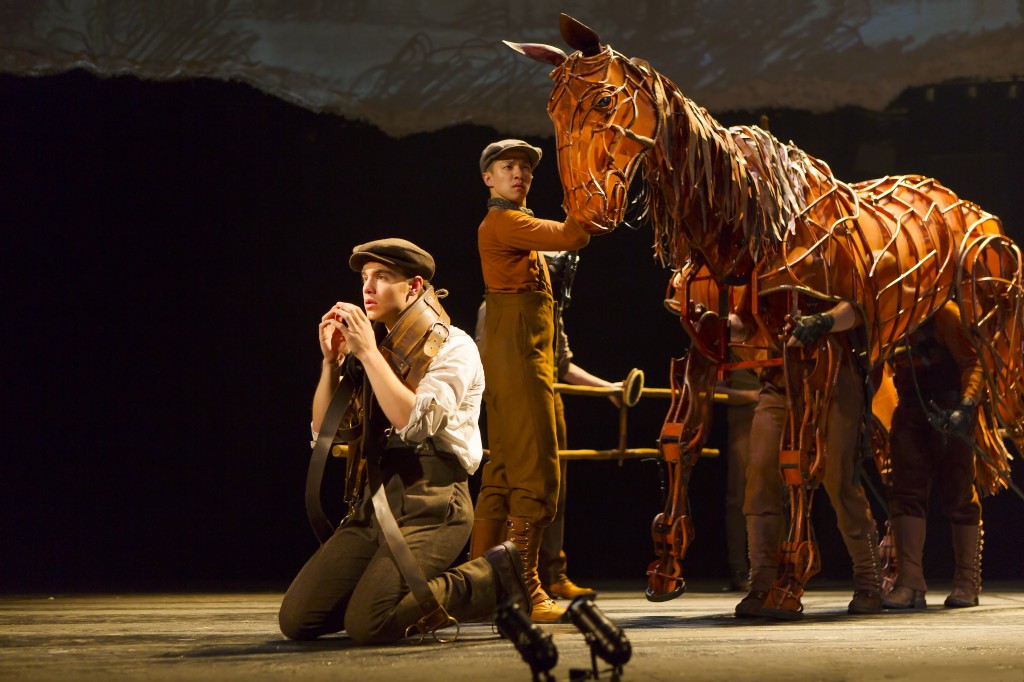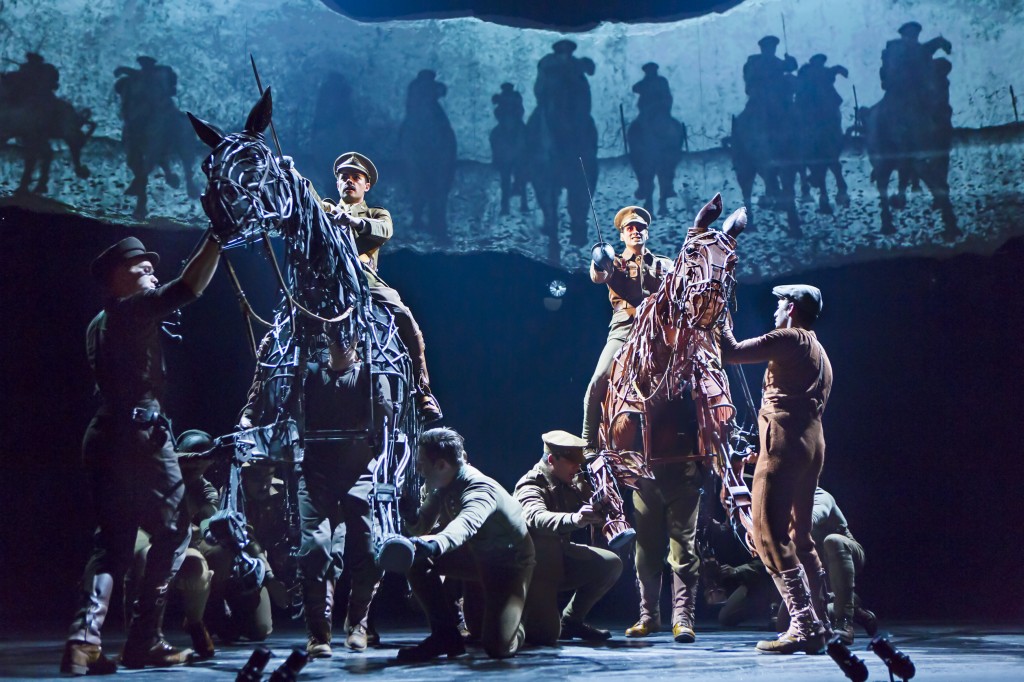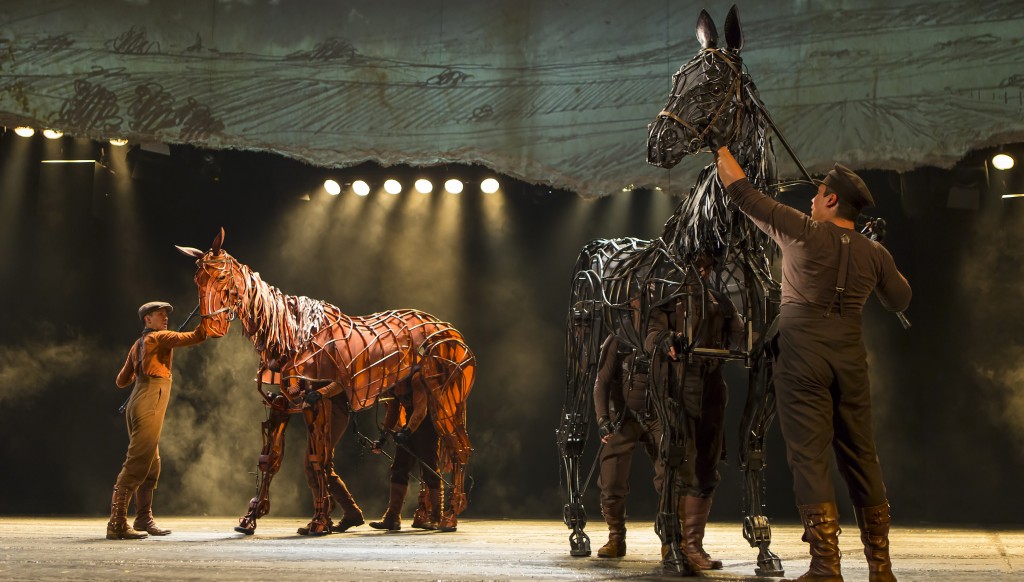
At Queen Elizabeth Theatre until September 29
www.vancouver.broadway.com
Posted on September 25, 2013
As spectacles go, War Horse wins by several lengths. The lighting is dynamic, the WWI battle scenes are hair-raising and the special effects – including explosions, mortar fire and a huge, thundering, armoured tank that comes lumbering out of the wings straight toward the audience – are terrifyingly re-created. The ads suggest ten as the minimum recommended age; I would not take a ten-year-old to War Horse without expecting nightmares for many nights. Even adults will have a hard time erasing the image of the horse Joey caught up in barbed wire and eventually collapsing, exhausted on the battlefield.
The life-size puppet horses that appear on all the ads are, as promised, amazing. Manipulated by three puppeteers each, they are created out of fabric and metal; there’s no effort made to make them look like flesh and blood horses. It’s the way they move that is so entrancing: the shake of the head, flick of the tail, the hoof pawing the floor or the huge animal rearing up, pawing the air and whinnying – or in some cases, screaming. The stars of this show are clearly the horse handlers. Check out the War Horse behind-the-scenes video at www.vancouver.broadway.com to see what’s involved in bringing the horses to life.

As a kid, I read all the Walter Farley books: The Black Stallion, The Son of Black Stallion, The Black Stallion Returns and on and on. So I should be a sucker for War Horse. And I was certainly impressed by production values the likes of which we don’t often see west of Vegas.
However, if you take the puppet horses and the impressive puppetry out of this show, adapted by Nick Stafford from Michael Morpurgo’s novel, what are you left with? A familiar story that we seem to have heard before: young farm boy (Albert) is given a horse (Joey) by his brutish father (Ted). Subsequently, Albert’s long-suffering mother (Rose) is unable to stop Ted from selling Joey to the British Army for the war effort in 1914; Albert, who has promised Joey he will never sell him, is heartbroken but too young to enlist. Joey, along with another beautiful black stallion (Topthorn), and the British and German troops go through hell. The war drags on and still-underage Albert joins up, is wounded and (spoiler alert) is reunited with Joey. In between, there is a lot of British flag-waving, slaughter of men and horses on the battlefield and one sweet scene as a British soldier and a German soldier flip a coin for the badly wounded Joey.
Some of the British accents are almost impossible to understand. Thankfully, Albert and Rose are clear, as are several others. But huge sections of dialogue are simply lost. Words to the otherwise lovely songs are hard to catch. My guest suggested it was the sound system in the QE – and there were times at the beginning when head mikes were cutting in and out – but mostly, I think, it was just the various and heavy accents.
For emotional impact, Peter Shafffer’s Equus beats War Horse hands down. The horse in the 2004 Playhouse production was played by Bob Frazer in a simple but elegant horse-head helmet of metal tubing. On his feet, Frazer wore high ‘clogs’ that clattered like hooves. But the story was deeply disturbing and profoundly moving.
That being said, War Horse, brought to Vancouver by Broadway Across Canada, is certainly epic and spectacular; the opening night audience was quickly on its feet cheering as the curtain fell. It feels like criticizing a sacred cow – or, in this case, horse, to diminish this highly anticipated, hugely acclaimed, award-winning show but War Horse is less a story about a boy and his horse than it is a celebration of puppetry. For puppetry that’s enthralling in every way, Ronnie Burkett is my man. His puppets may be small but his stories are big.


